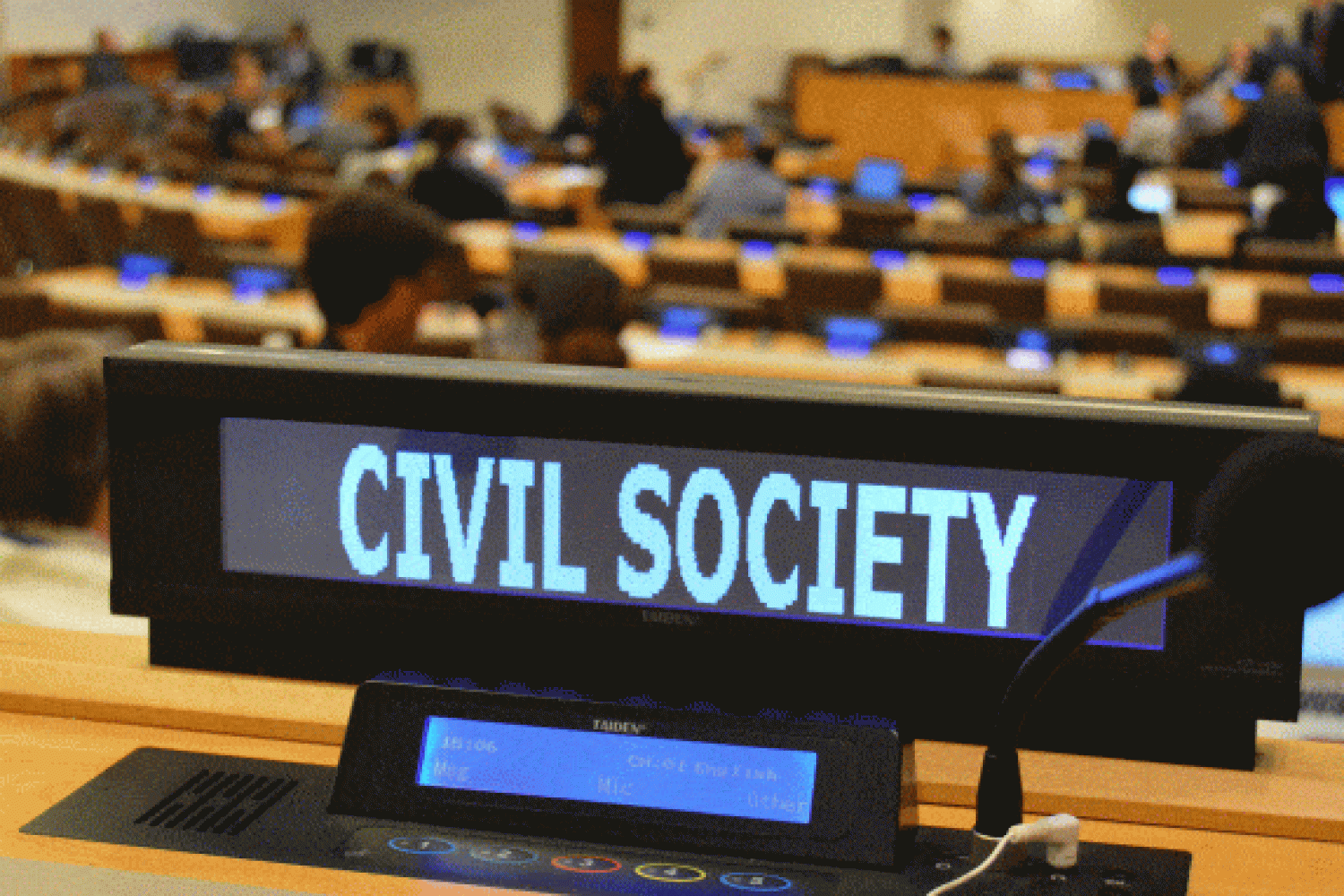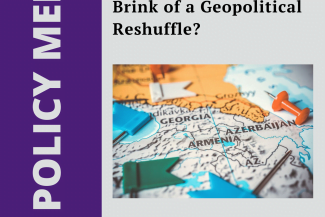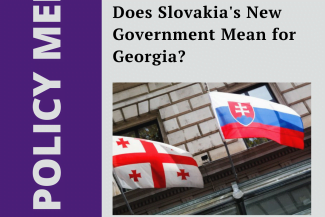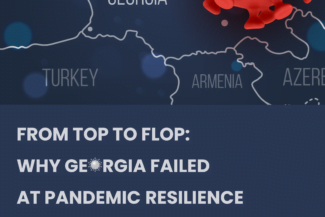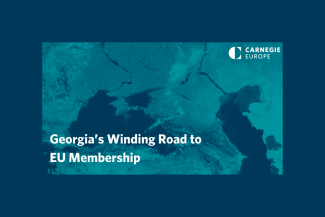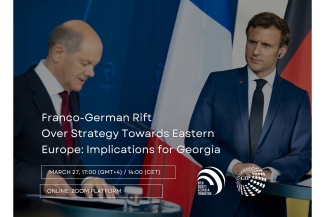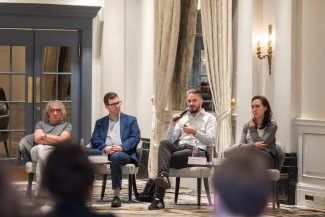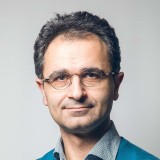
Author
Jaba Devdariani
As Georgia emerged from its long holiday slumber in January, the ruling party, “Georgian Dream” sponsored an attack ad campaign on social media, against civil society groups. The ads said CSOs are against the country’s established church and therefore anti-Georgian. This claim was based on the “evidence” that some NGO managers published congratulations with Christmas on 25 December, rather than 7 January, when the parish of the Georgian Orthodox Church celebrates. The attack ads said they were engaged in “proselytism.”
One could put this down to the arcane ecclesiastical habits and the quirkiness of the polarized Georgian political life if it were not an integral part of the trend to squeeze Georgia’s civil society. And this is a trend that Georgia’s international partners should start reacting to promptly or the civic space will be considerably curtailed.
A casual international observer would see no significant problem on the surface. Georgia’s civil society sector is what the international documents casually refer to as “vibrant.” Larger CSO groups are well-established, they are present in the media and try to influence policy. Even smaller, grassroots groups are gaining momentum in regions and municipalities. Establishing a civil society group is simple, they are exempt from most taxes, and paying income tax from their staff salaries is easy.
And yet, the current wave of attack has a chilling effect and should raise red flags among Georgia’s European and U.S. partners.
For one, there is a systemic effort afoot to discredit civil society groups and vilify them as “anti-Georgian” and “anti-Christian.” Imedi TV, a government mouthpiece, ran several reports claiming – counterfactually – that CSOs are not accountable and repeatedly labeled them “rich NGOs” in subsequent reports. Party politicians, pro-governmental pundits, some clerical officials, internet trolls, and bot farms seem to be operating in a synchronized manner.
Similar campaigns demonizing the LGBTQ community had already escalated from online bullying to real-life pogroms, including of the human rights CSOs. Similarly, in 2020 civil servants were vilified through coordinated media campaigns and jailed on trumped-up charges of “selling the Georgian land.” In the past week, Levan Berdzenishvili, a respected scholar was mobbed by thuggish groups for expressing a controversial view about Georgia’s 18th-century monarch after the pro-governmental media and social channels painted him as unpatriotic.
Some CSO leaders and activists see the escalating orchestrated media pressure as a sign that they are next in line.
A concrete legislative proposal is being drafted, which would impose a Russia-like “foreign agent” label on CSOs that are funded from abroad. One should not be fooled by the fact that the legislation is proposed by a fringe group. The “People’s Power” faction in the parliament has emerged out of the ruling “Georgian Dream” and is still supporting the government. The ruling party leader said that they have “no considerable difference… on core values.” What is more, the attack on CSOs comes at a time, when the ruling majority is increasingly impatient and confrontational with Western partners.
The “Georgian Dream” has done practical steps to bar CSOs from the policy process: for example, ISFED, a respected elections watchdog, was recently prevented from participating in a parliamentary committee. This holds one key to explaining the reasons for the campaign – the Parliamentary elections are slated for 2024, and the ruling party would want to run them without too many prying eyes.
Indeed, the “Georgian Dream” has done a lot in recent years to erode the checks and balances. Through middlemen, it has taken over an independent media outlet, Rustavi 2, and has thrown to jail the manager of its successor TV company. The ruling party stuffed the Supreme Court with its loyalists, and consistently reduced the independence of courts. Opposition politicians have also been jailed and harassed. The opposition parties are fragmented and incapable of meaningfully impacting policy – partly due to government harassment, partly due to their own failings.
Under these circumstances, CSOs – often Western-funded – remain one of the few truly independent venues for discussion, debate, an ersatz for ensuring public participation, and, increasingly, political activism. Thousands of Georgians came out in a largely CSO-organized protest when the government failed to deliver on EU candidacy.
There are precedents in the past. Eduard Shevardnadze’s flailing government tried to muzzle CSOs and impose tight financial controls in 2002, one year ahead of the elections. But this pressure came to naught: U.S. backing was too important politically and financially for the Shevardnadze administration, and CSOs could rely both on partners from Washington D.C. and the influential figures in the parliament and in administration. The finance minister stepped down from the government in disagreement.
Today, the situation is different. Neither does PM Irakli Garibashvili’s government feel beholden to foreign funding (they already rejected the EU loan over political disagreement), nor it has qualms about venting anti-U.S. sentiments (the government has been personally attacking U.S. Ambassador for months). What is more, the billionaire-backed “Georgian Dream” has built a whole network of loyal think tanks and CSOs, ready to fill the seats of “civil society.” The political links won’t help CSOs either – on the contrary, the ruling party has used personal and political sympathies with opposition leaders as a cudgel to discredit CSOs.
True, international donors and partners support CSOs. The government itself has committed to respect and support civil society activities in the Association Agreement with the EU, and similar principles are listed in strategic partnership agreements with the U.S. and the U.K.
As Richard Youngs, a respected scholar of governance reforms has argued, globally “the restrictions on civil society are one of the leading edges of their gradual, incremental strategy of autocratization.” Once the government has pushed through regulatory and legislative changes, there is little international actors could do.
Now it is time for CSOs to work closely with supporters of Georgia’s democracy and with the wider public, and to act preventively.
Some potential steps may include:
To the democracy support community:
- Elevate CSOs to the strategic level: using various existing venues, such as the EU Association process, Wardrope Strategic Dialogue with the U.K., Amilakhvari Strategic Dialogue with France, Georgia’s partners could communicate, that specific legislative attempts to harass CSOs would trigger the conditionality clauses in a concrete set of assistance instruments. After all, contrary to government propaganda, most foreign financial and technical assistance still goes to the government. The aid to central government agencies, such as the Administration of Government, could be stopped and these funds redirected to supporting watchdogs.
- Democracy support organizations (DSOs) should set up a regular format of monitoring and consultation concerning the attacks on civic space.
- DSOs shall consider providing longer-term, core funding to national CSOs, thus ensuring their sustainability and thus enhancing their ability to contribute to policy in a sustained manner.
- DSOs, in consultation with local CSOs should explore ways to help civil society groups reach Georgians better with social assistance, legal aid, and similar programs.
- Donors should consider supporting independent newsrooms and public service journalism more, to prevent the malignant actors from drowning out the pro-democracy messages on social media.
To CSO community:
- Don’t make it about yourself but do what you do best: continue to advocate on the matters of common public interest and for individual rights.
- Develop a coordinated communication campaign and speak to the nation about the impact your work has on lives. Rather than responding to absurd allegations get your story out about the ways in which civil society organizations help communities organize and develop; practically defend individuals’ rights from state overreach; and uncover government malpractice and corruption.
- Do not let the malignant actors monopolize the patriotic label. CSOs, think tanks, and academia do a lot to research history, promote Georgia’s culture, protect its national heritage, and advocate for Georgia’s cause on the international arena.
- Do not let the populists monopolize the right to speak in the name of the majority. Make it clear, that the European values you support are also Georgia’s Constitutional commitments and represent the constituent will of the majority. Defend these in courts when you must.
- Avoid alienating civil servants by painting them with the same brush as their political masters. Continue to engage them in cooperation and learning formats wherever possible, be it fighting foreign misinformation, managing the policy-making process, or dealing with garbage disposal at the municipal level.
About the Author: Jaba Devdariani had been a civic activist in Georgia in 1996-2003. He is now advising international organizations on governance reforms.

